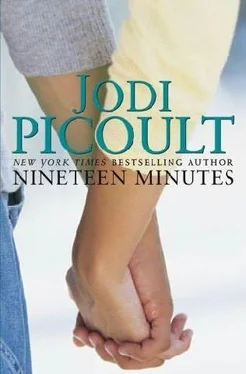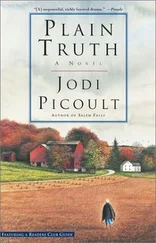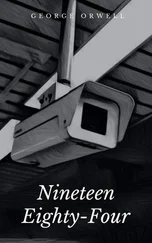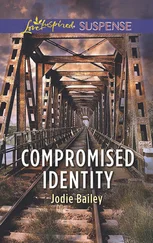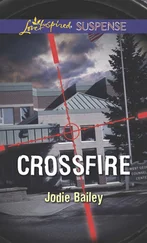He drove north, as if he was going to the jail, and for a moment Lacy had a crisis of doubt: would Peter have lied to her, for some reason? She didn’t think so. But then again, she hadn’t thought Lewis would, either.
It started to rain just as they reached the green in Lyme Center. Lewis signaled and turned into a small parking lot with a bank, an artist’s studio, a flower shop. She couldn’t pull in behind him-he’d recognize her car right away-so instead she drove into the lot of the hardware store next door and parked behind the building.
Maybe he needs the ATM, Lacy thought, but she got out of her car and hid behind the oil tanks to watch Lewis enter a floral shop, and leave five minutes later with a bouquet of pink roses.
All the breath left her body. Was he having an affair? She had never considered the possibility that things could get even worse, that their small family unit could fracture further.
Lacy stumbled into her car and managed to follow Lewis. It was true, she had been obsessed with Peter’s trial. And maybe she had been guilty of not listening to Lewis when he needed to talk, because nothing he had to say about economics seminars or publications or current events really seemed to matter anymore, not when her son was sitting in jail. But Lewis? She’d always imagined herself as the free spirit in their union; she’d seen him as the anchor. Security was a mirage; being tied down hardly counted when the other end of the rope had unraveled.
She wiped her eyes on her sleeve. Lewis would tell her, of course, that it was only sex, not love. That it didn’t mean anything. He would say that there were all sorts of ways that people dealt with grief, with a hole in the heart.
Lewis put on his blinker again and turned right-this time, into a cemetery.
A slow burn started inside Lacy’s chest. Well, this was just sick. Was this where he met her?
Lewis got out of the car, carrying his roses but no umbrella. The rain was coming down harder now, but Lacy was intent on seeing this through to the end. She stayed just far enough behind, following him to a newer section of the cemetery, the one with the freshest graves. There weren’t even headstones yet; the plots looked like a patchwork: brown earth against the green of the clipped lawn.
At the first grave, Lewis knelt and placed a rose on the soil. Then he moved to another one, doing the same. And another, and another, until his hair was dripping into his face; until his shirt was soaked through; until he’d left behind ten flowers.
Lacy came up behind him as he was placing the last rose. “I know you’re there,” he said, although he didn’t turn around.
She could barely speak: the understanding that Lewis was not, in fact, cheating on her had been tempered by the knowledge of what he was actually spending his time doing these days. She couldn’t tell if she was crying anymore, or if the sky was doing it for her. “How dare you come here,” she accused, “and not visit your own son?”
He lifted his face to hers. “Do you know what chaos theory is?”
“I don’t give a fuck about chaos theory, Lewis. I care about Peter. Which is more than I can say for-”
“There’s this belief,” he interrupted, “that you can explain only the last moment in time, linearly…but that everything leading up to it might have come from any series of events. So, you know, a kid skips a stone at the beach, and somewhere across the planet, a tsunami happens.” Lewis stood up, his hands in his pockets. “I took him hunting, Lacy. I told him to stick with the sport, even if he didn’t like it. I said a thousand things. What if one of them was what made Peter do this?”
He doubled over, sobbing. As Lacy reached for him, the rain drummed over her shoulders and back.
“We did the best we could,” Lacy said.
“It wasn’t good enough.” Lewis jerked his head in the direction of the graves. “Look at this. Look at this.”
Lacy did. Through the driving downpour, with her hair and clothes plastered to her, she took stock of the graveyard and saw the faces of the children who would still be alive, if her own son had never been born.
Lacy put her hand over her abdomen. The pain cut her in half, like a magician’s trick, except she knew she would never really be put back together.
One of her sons had been doing drugs. The other was a murderer. Had she and Lewis been the wrong parents for the boys they’d had? Or should they never have been parents at all?
Children didn’t make their own mistakes. They plunged into the pits they’d been led to by their parents. She and Lewis had truly believed they were headed the right way, but maybe they should have stopped to ask for directions. Maybe then they would never have had to watch Joey-and then Peter-take that one tragic step and free-fall.
Lacy remembered holding Joey’s grades up against Peter’s; telling Peter that maybe he should try out for soccer, because Joey had enjoyed it so much. Acceptance started at home, but so did intolerance. By the time Peter had been excluded at school, Lacy realized, he was used to feeling like an outcast in his own family.
Lacy squeezed her eyes shut. For the rest of her life, she’d be known as Peter Houghton’s mother. At one point, that would have thrilled her-but you had to be careful what you wished for. Taking credit for what a child did well also meant accepting responsibility for what they did wrong. And to Lacy, that meant that instead of making reparations to these victims, she and Lewis needed to start closer to home-with Peter.
“He needs us,” Lacy said. “More than ever.”
Lewis shook his head. “I can’t go to see Peter.”
She drew away. “Why?”
“Because I still think, every day, of the drunk who crashed into Joey’s car. I think of how much I wished he’d died instead of Joey; how he deserved to die. The parents of every one of these kids is thinking the same thing about Peter,” Lewis said. “And Lacy…I don’t blame a single one of them.”
Lacy stepped back, shivering. Lewis wadded up the paper cone that had held the flowers and stuffed it into his pocket. The rain fell between them like a curtain, making it impossible for them to see each other clearly.
Jordan waited at a pizza place near the jail for King Wah to arrive after his psychiatric interview with Peter. He was ten minutes late, and Jordan wasn’t sure if that was a good thing or a bad thing.
King blew through the door on a gust of wind, his raincoat billowing out behind him. He slid into the booth where Jordan was sitting and picked up a slice of pizza on Jordan’s plate. “You can do this,” he pronounced, and he took a bite. “Psychologically, there isn’t a significant difference between the treatment of a victim of bullying over time and the treatment of an adult female in battered woman syndrome. The bottom line for both is post-traumatic stress disorder.” He put the crust back on Jordan’s plate. “You know what Peter told me?”
Jordan thought about his client for a moment. “That it sucks being in jail?”
“Well, they all say that. He told me that he would rather have died than spend another day thinking about what could happen to him at school. Who does that sound like?”
“Katie Riccobono,” Jordan said. “After she decided to give her husband a triple bypass with a steak knife.”
“Katie Riccobono,” King corrected, “poster child for battered woman syndrome.”
“So Peter becomes the first example of bullied victim syndrome,” Jordan said. “Be honest with me, King. You think a jury is going to identify with a syndrome that doesn’t even really exist?”
“A jury’s not made up of battered women, but they’ve been known to acquit them before. On the other hand, every single member of that jury will have been through high school.” He reached for Jordan’s Coke and took a sip. “Did you know that a single incident of bullying in childhood can be as traumatic to a person, over time, as a single incident of sexual abuse?”
Читать дальше
